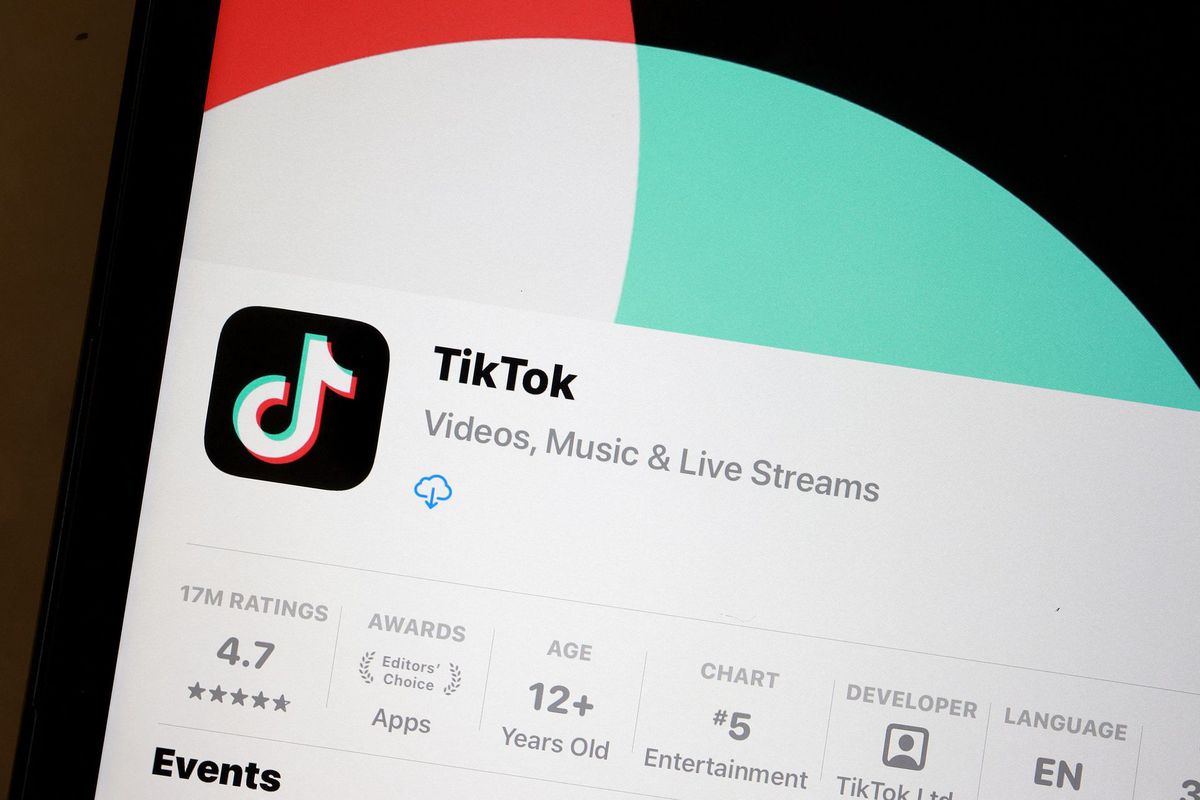The century of humiliation won't be repeated over TikTok
By Tom Fowdy | China Daily Global | Updated: 2024-04-25 09:12

On Tuesday, the US Senate passed a legislation that would ban popular short video app TikTok, the most downloaded social media platform on the planet, in the United States unless the app's Chinese owner ByteDance sells it within a year. The legislation was included as part of a larger $95 billion package that provides foreign aid to Ukraine and Israel, among others, which was passed in the US House of Representatives over the weekend. The package will become law once US President Joe Biden signs it, which he said he would.
The bill originated from Representative Mike Gallagher, who along with many others, pushed the false assumption that the app is controlled by China's government and subsequently pushed a bill demanding it be sold at gunpoint in order to continue to operate in the US, where it has 170 million users. With a Senate vote likely to follow, Biden stated he would support the bill. However, legal experts earlier told the mainstream media they do not believe such a bill will survive a legal challenge because of the implications it has for the First Amendment.
The idea that the US believes it has a right to extort a company into selling a hugely successful operation is an act of extreme arrogance, entitlement, and unbridled callousness. Not only does it illustrate the absurd levels of irrational paranoia and McCarthyism that have gripped Washington DC, but also the total lack of respect it has for China and its people. Using the auspices of the Communist Party of China as a justifying premise for anything in the country they do not like, these kinds of politicians believe they have a right to undermine, trample upon and diminish anything China has produced which is equal to or better than what is produced in the US, showing the country's hegemonic mindset.
This kind of attitude, the belief that China must be "coerced" into handing over its economic assets and resources to the West, has been inflicted on the country over the centuries and was most blatant in what China describes as "the century of humiliation" when Western powers brutally subjugated the Qing Dynasty (1644-1911) into accepting their will and exploited according to their interests. This is most famously depicted through the Opium Wars, whereby the British Empire waged war on China for its refusal to open its markets up to opium and forced the Chinese into the first "Unequal Treaty" which not only imposed the export on them by force, but also ceded Hong Kong as a port for doing so.
Other such "unequal treaties" over the years created other foreign concessions in China, allowed Westerners in China to be exempt from local laws and treat Chinese people as inferior, second-class citizens. Although this system is long gone, the fundamental mindset in the West's relationship toward China that assumes the country to be inferior and advocates a sense of entitlement to its markets and resources, remains, and is manifest in the belief of American politicians that the country has a right to effectively "steal" TikTok from Chinese ownership by attempting to leverage its operation on the threat of a ban. There is a line of thought present that only the US has the right to create globally successful media apps, and that China has no entitlement to do so based on a highly dubious political excuse.
However, the century of humiliation is over, and likewise any attempts to impose that kind of coercion and subordination on China will almost certainly fail. When former US president Donald Trump's administration in 2020 attempted to ban TikTok under the threat of a sale, an effort which also failed, China's government responded by simply making it illegal for ByteDance to engage in such a transaction. There is no reason to assume that has changed, the same rule applies today. Under no circumstances will the company be allowed to sell such a wildly successful product under the threat of force to an American company. It is nothing less than effective robbery and contravenes every way and principle a free market is expected to operate.
If the US, therefore, goes ahead with a ban given there is no sale to be had, it will invoke the anger of over 170 million Americans who use the app and will be a politically self-defeating move for any figure who endorses it. This in any case will demonstrate the paranoid, unreasonable and unhinged culture which overhangs Capitol Hill on matters pertaining to China. This is of course, assuming such a ban will survive the inevitable legal challenge against it, which is also doubtful.
However, the message must be made clear. The US has no right to steal, undermine or impede China's success. The hysteria over TikTok is regurgitated paranoia based on a toxic mix of self-entitlement, McCarthyism and reactionary jealousy, all of which are rooted in the inherent denial of China's own development and success, the idea that all countries big or small must be inferior to America. Competition of course is fine, but this isn't competition, it's extortion.
The author is a British political and international relations analyst.
























